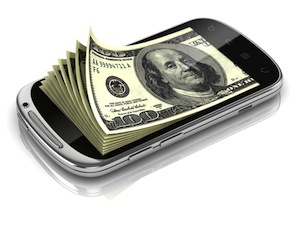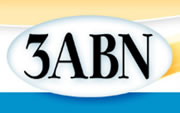Thoughts on the New Cashless Society
 To say that living without cash has been the stuff of legend would be an exaggeration . but only a slight one. And the reality may come sooner than we think.
To say that living without cash has been the stuff of legend would be an exaggeration . but only a slight one. And the reality may come sooner than we think.
For literally hundreds of years, the thought of a society without cash, or money at all, has been on the minds of utopian philosophers, financial activists, anarchists and other groups, usually upset at the limitations and abuses of a representative money system. During most of this time, "cashless" - often literally "moneyless" - was a hallowed vision in the minds of some but, being virtually impossible to implement in a society beyond the near-tribal agrarian state, it was pretty much all talk.
Well, it’s back, this time driven by the intersection of consumer, banking, commerce and mobile automation forces that together may make its realization more likely than ever and of major importance to our burgeoning mobile automation world.
"Don't Leave Home Without It" - The Rise of "Virtual Cash"
For our purposes it began in the past 50 years as the computer and communications ages matured and the idea of cashless transactions if not a cashless society began to seem not just attractive but actually possible. As packet switching technology came on the scene in the 1970s, our ability to connect points across a wide area showed us that people and organizations could communicate via large managed networks.
Even at this early stage of communications, financial transactions seemed a prime candidate for automation — the Society for International Financial Telecommunication “SWIFT” was founded in 1973 — requiring the movement of only small packets of data, often using individual bits as codes, for their completion.
Around this time we also saw the growth of an independent credit card authorization industry, fueled initially by the realization that people spent more if they could “charge it” and by the merchant community’s desire to stoke that effect by offering the use of credit cards using packet switched networks to instantly approve sales at retail outlets. Initially controlled by the large credit authorization networks like VISA and MasterCard (AMEX was both lender and its own closed network), credit and sales authorization has paralleled the explosive growth of electronic commerce in general, fueled initially by Dell online computer sales, begun in the late 1980s, and by Jeff Bezos’ launch of Amazon.com in 1995.
What’s important about this is that it represents an early intersection of banking, automation, consumer and business interest in buying and selling things without cash or hard-copy checks. One might go as far as saying the two-decade period from 1980 through 2000 saw the rebirth of interest in a “cashless society” albeit for a very different set of reasons than had previously been the case.
A corollary effect, of course, has been the assault on the brick and mortar world as more and more buyers use computers rather than storefronts to make their purchases. That assault will probably continue although we could see stores, needing less space and inventory as their clients receive more products via direct shipment, morphing into smaller, less expensive “display centers” where buyers can touch and try before ordering online.
In the relative dark ages — actually, the 1950s through mid-60s — when almost everyone gave, saved and redeemed “Green Stamps,” the “display center” model worked reasonably well on a limited basis: you went to the local Green Stamp showroom with your books of stamps, selected the item you wanted, turned in the stamps and had the product shipped to your home. Yes, it was a bit hokey but it, and its window signs: “We give Green Stamps,” had a major impact on where many consumers shopped.
Electronic Payments meet the Smart Phone
While once based on lofty or pecuniary considerations, today’s interest in a cashless society appears to be largely driven by convenience. People, especially a younger generation weaned on “anywhere-anytime” automation, like being able to do things instantaneously wherever they happen to be. They also like buying things and paying for them without having to count the money they have in their pockets. Merchants like selling to more willing credit users, and the financial industry likes lending money at rates much higher than normal loan or mortgage interest. And, of course, the automation industry likes anything that makes their newest gadgets seem indispensable.







